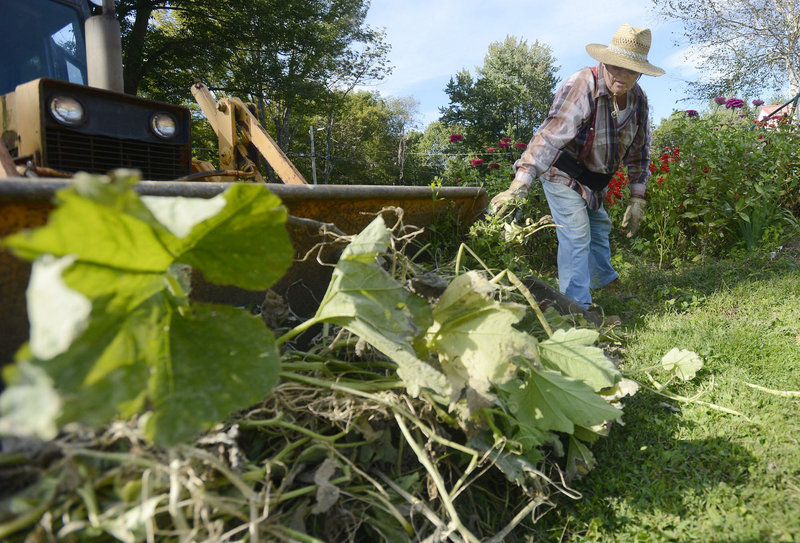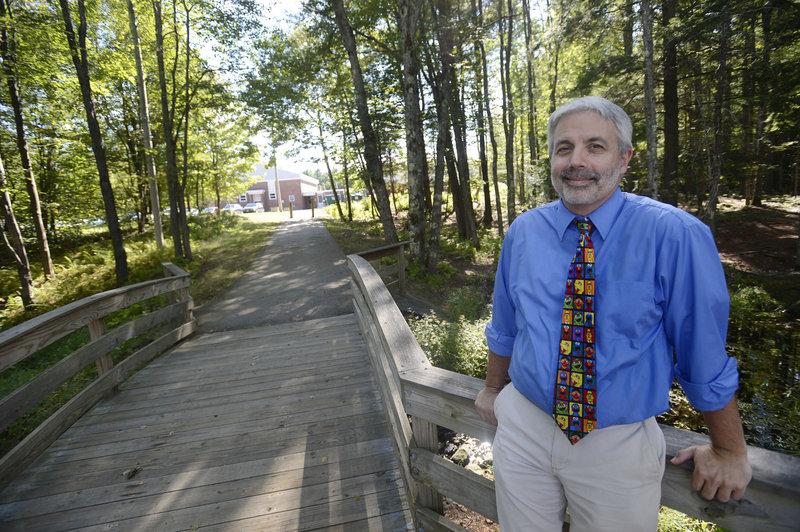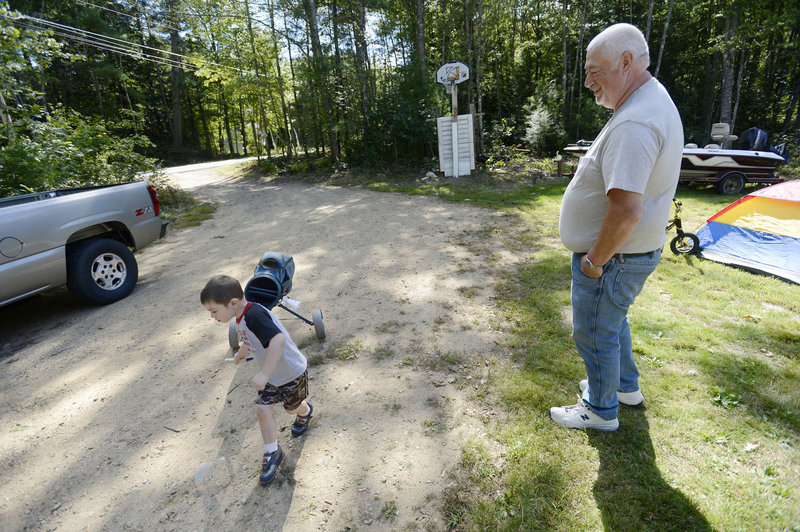LEBANON — Although both Eastern equine encephalitis and West Nile virus now have been confirmed in the small York County community of Lebanon, most residents are taking the threat in stride.
The state’s first confirmed cases of EEE this year caused the deaths of 30 ringneck pheasants last Thursday on an undisclosed farm in Lebanon. State health officials informed town selectmen Friday, and they alerted residents Monday. West Nile was found last month in mosquito surveillance pools from Lebanon north to Gorham and Standish.
The arrival of the viruses “sounds alarming to people,” said state epidemiologist Dr. Stephen Sears. “We have a lot of mosquitoes in Maine in September. Everyone should be aware, but it is not time to be afraid.”
Of 45 species of mosquitoes in Maine, only five or six carry these diseases, Sears said.
“All you can do is hope for the best,” said Dave Page, who with his wife, Betty, has lived in Lebanon for nearly a half-century.
“I’ve been worried about (the virus) for years,” he added. A neighbor lost a horse to EEE several years ago, he said, and the husband of “a real nice young couple” in town had been diagnosed with an insect-borne disease that caused neurological damage from which he has suffered for two years.
But despite the two viruses hitting so close to home, Page was outside Tuesday tending his wife’s zinnias, dahlias and sunflowers. She was working rows of bush beans. He wore a big straw hat for sun protection but not a speck of insect repellent.
“Mosquitoes?” he shrugged. “We have tons of butterflies and dragonflies … and a couple of bats.” He’s convinced they’ll do the trick.
Both Page and his wife admitted that they were disturbed to hear about the EEE discovery. They have found a couple of finches dead on their property this summer, and birds — particularly game birds, such as the infected pheasants in Lebanon — are “highly susceptible” to the viruses, said Sears. Captive birds can suffer fatal infection “because they’re so close to each other” in cages “and they can transmit to each other through pecking (order) behavior” that may result in small cuts or scratches. Blood carries the viral infections.
“We know it’s in the birds,” Sears said. The recent EEE infections had shown up in the same area in which West Nile had been found earlier in August, he said.
Near the Page home, Garrett Paulino, 22, and Justin Fitton, 21, both of Lebanon, were out jogging. Fitton said he was “somewhat concerned” about reports of EEE, but Paulino shrugged off the threat. Neither had used insect repellent before leaving home.
Down the road at Hanson Elementary, the school day was winding down and Stephanie Richard was just arriving with her younger children to pick up her 8-year-old daughter Emma, now in third grade.
She said she hadn’t been thinking about EEE or West Nile, but then mentioned that she was awaiting word on the condition of her brother, Adam Herson of Wakefield, N.H., who is being treated for a suspected West Nile infection.
“You do the best you can,” said Tammy Baxter, director of operations at Goodall Hospital in nearby Sanford, as she herded her 5-year-old daughter, Jenna, into the car outside the school. “It’s no different” than other commonplace risks that require specific precautions, she said. “Like a tick.”
Hanson Elementary is next to Lebanon Elementary School, the two properties separated only by a short footbridge over a small creek. It’s the kind of prime mosquito-breeding habitat — swamps and wetlands — common in the sprawling rural town of about 4,000.
But there was little evidence of concern as minivans and buses lined up to ferry students home.
“In general, it’s been pretty good here,” said Tom Ledue, principal of both schools. Already this semester, teachers have been required to provide age-appropriate lessons about the viruses and ways to prevent mosquito bites. “And we’re encouraging parents to talk to their children,” he said, to provide information and address any fears that might arise.
The intent is to “not put kids into a state of panic,” Ledue said, but to demonstrate “the reality of the risk (and) put it in perspective.”
“There are far greater risks we face every day,” he said. Each of the viruses “looks scary and … is a real thing. But in any given year the flu is going to be a greater risk to them.”
Lebanon school officials late last month decided on what Ledue called “a prudent plan” to have the margins of the school properties and playgrounds sprayed with an herbal pesticide after West Nile was discovered.
But the 30 or so children out for Tuesday afternoon recess were interested only in romping around for a few minutes. The mood teachers and other school personnel are trying to create, Ledue said, is to “be really calm and objective, to educate our kids but not scare them. They don’t need to be afraid of going outside.”
While EEE can be transmitted to people and has been a human health issue, most recently in three Massachusetts cases, in Maine “the biggest concern is horses” (and) “reminding people that they should vaccinate their horses,” Sears said.
“It’s of concern,” he acknowledged, “but it’s something we’ve seen in Vermont, New Hampshire and Massachusetts. We’re going to continue to test” and monitor sites around the state, he said, at least through the end of September, or until the first few hard frosts suppress the mosquito populations.
Staff Writer North Cairn can be contacted at 791-6325 or at: ncairn@pressherald.com
Send questions/comments to the editors.





Success. Please wait for the page to reload. If the page does not reload within 5 seconds, please refresh the page.
Enter your email and password to access comments.
Hi, to comment on stories you must . This profile is in addition to your subscription and website login.
Already have a commenting profile? .
Invalid username/password.
Please check your email to confirm and complete your registration.
Only subscribers are eligible to post comments. Please subscribe or login first for digital access. Here’s why.
Use the form below to reset your password. When you've submitted your account email, we will send an email with a reset code.